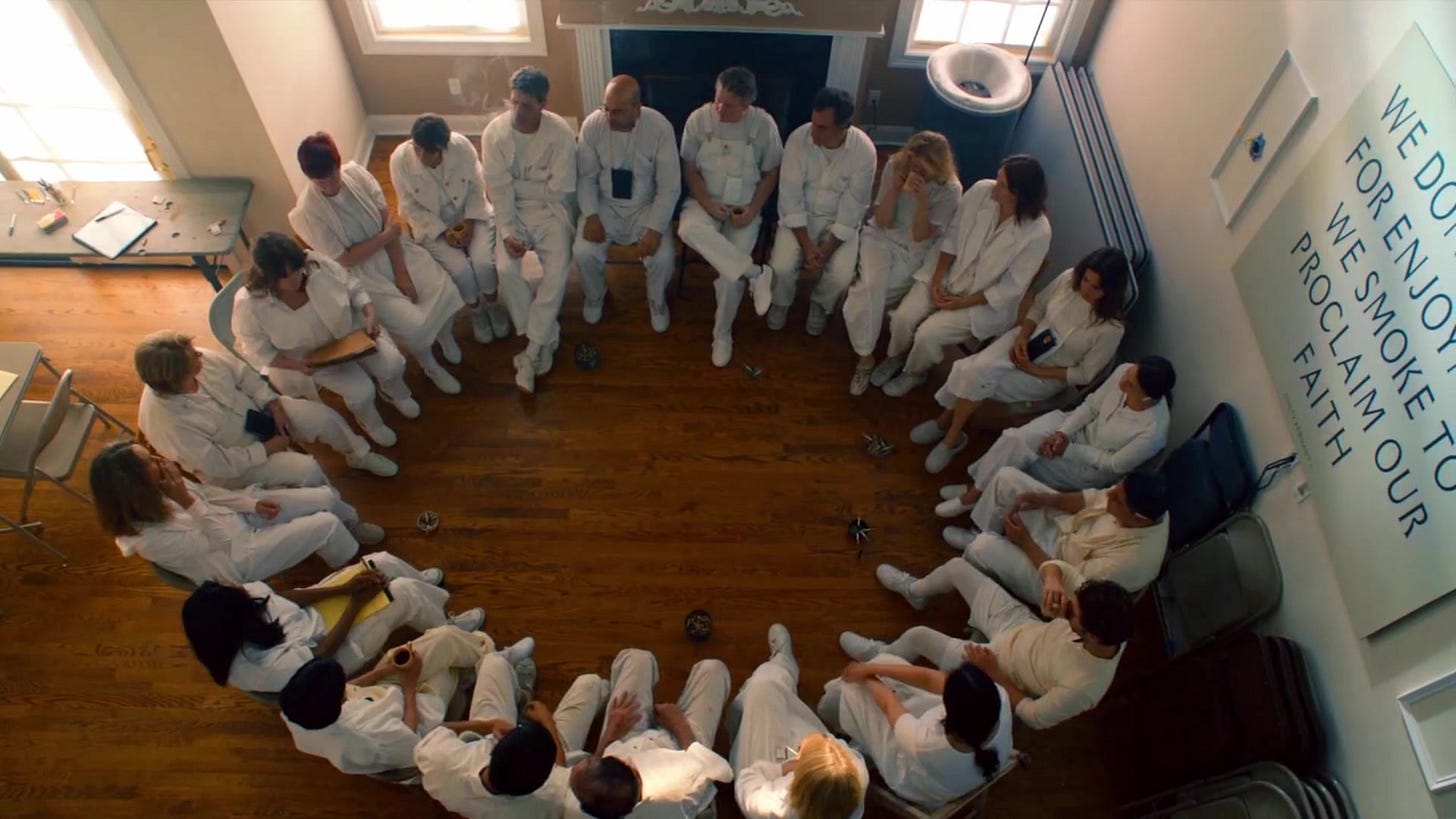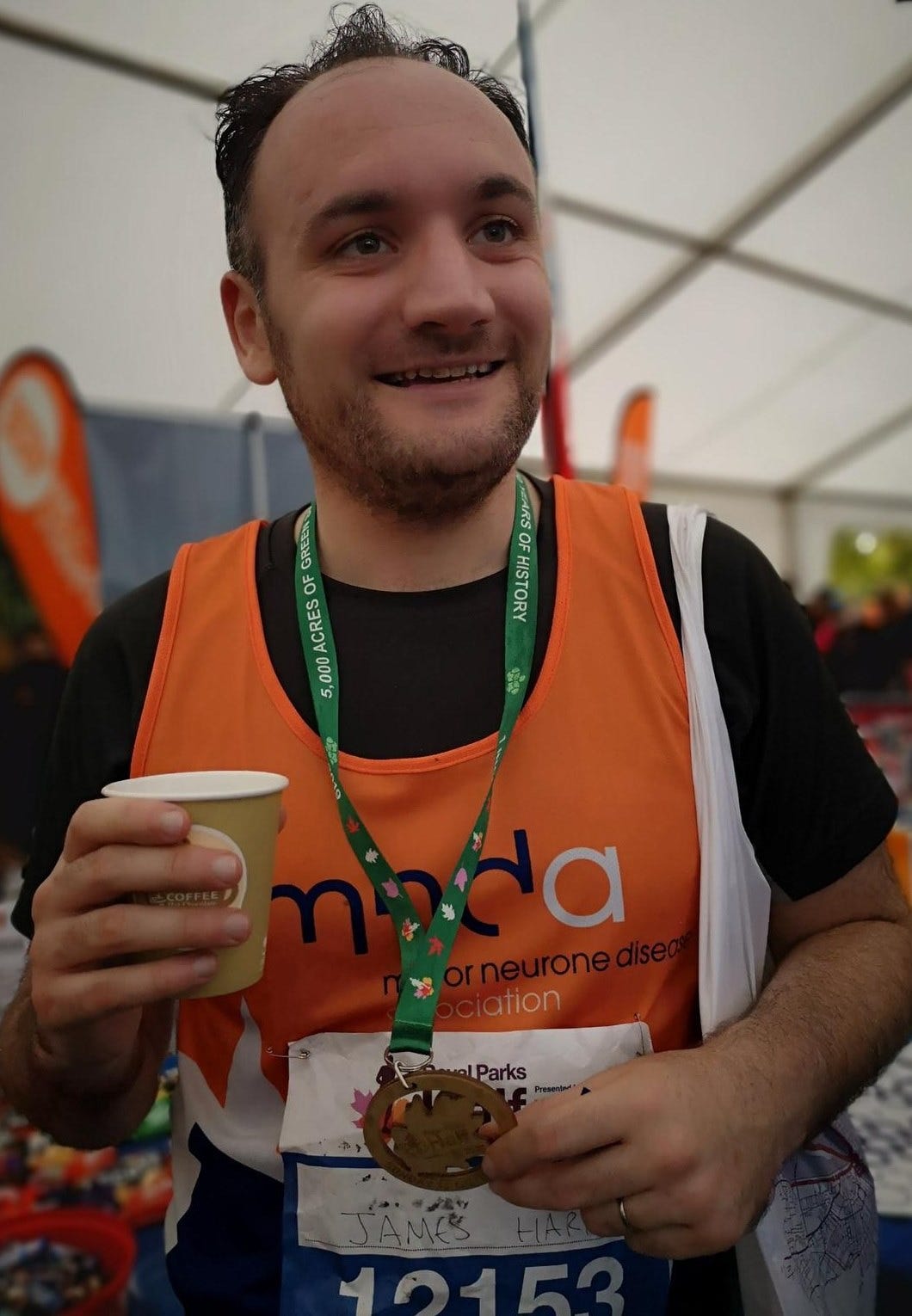I can never decide if I’m depressed or just honest. Might it not be the case that a certain empathetic and insightful view of life would also lead to an unpleasantly heightened sense of its difficulty and sadness? But I have chosen to call my recurrent low moods depression, and they have been with me for a long time now.
In my early 20s depression devastated me, left me unable to function or take care of myself, thinking only of how I could end my life. Yet even at that time I felt there was some aspect of my nature watching from the outside, seeing how far I could push things, watching me perform madness and life-hatred in my own life. This has been a strange part of my depression, a sense of both being deeply unhappy and needing to make a performance of that, to demonstrate to others – to the extent that they exist in your mental space in periods of despair at all – that no, this is not OK, no, things are not OK.
Despite that early breakdown, I have had a better run of mental health since, and I would say that across the years 2005 – 2021 I was generally, give or take the odd spell of torpidity, in decent mental health. Late last year, a career disappointment brought on a period of severe depression, the worst I’d experienced in many years. With work and rest and careful thought, it has, hopefully, already begun to fade.
I also sought help for my hypochondria, undergoing a course of Cognitive Behavioural Therapy. This followed a week in summer when I convinced myself I had post-covid lung scarring, fibromyalgia, and bowel cancer, the latter of which turned out to be a case of piles. Needless to say, my health anxiety was far from helped by my habit of reading medical information online or constantly using websites to calculate my life expectancy. The course did help, and I’m pleased to say that my anxiety is somewhat ameliorated, leaving me free to see just how bad my depression is.

I’ve had therapy before, amidst that early 20s collapse, and I found then as now that, while talking therapies are very helpful and come recommended, you eventually find yourself in a place where you’re having to face up to the unshifting basic problems of life. This is the ‘depression as clear sight’ I spoke of earlier.
Let me put it as simply as I can. You’re sad because you think life isn’t worth living. The depression lifts, and then you become sad that your life will one day end. There’s not a lot your therapist can do about that; the path back to life is a path back to its sadness too. For instance, I find it immensely melancholic that the time each generation gets at its peak is so short, that just ten years ago, my early-80s cohort were at the apex of our beauty and strength, ready to change the world or at least redistribute some of its assets. Now we’re all sliding into middle age, harassed by mortgages and kids, our optimism subdued or gone. What, realistically, could a therapist tell you to do about that? Sure, they can facilitate your greater acceptance of it, but they can’t change what you have to fundamentally accept.
The element of performance in depression arises in part in response to such realities. I remember a day at university when I covered my face in shaving foam while frenziedly lamenting my existential crisis to two female friends of mine. (My apologies to them; they did, in fairness, seem to find it quite funny). Please don’t get me wrong – that young man covered in foam was genuinely upset, unable to process a rather brutal turn of events in his young life. But at the same time he wanted on some level to give people a show. I don’t think that desire made my mental anguish any less real; perhaps the desire to perform is even what kept Shaving Foam Man alive.
What therapy and the usual advice against depression can help you with hugely is the day-to-day. If you get rest, eat healthily and stay fit, and use medication whenever necessary, you can get to a stage where, while you may be sad, you’re at least punctual. During my quarter-life crisis, I would say I felt discussions of my depression all inevitably led to a small office where a middle-aged man would tell me to do more exercise; now, two half-marathons and five 10ks into a running career, I squarely acknowledge those middle-aged men as having been quite right too. Nothing has benefited my mental health more than getting fit. But their advice was still useless to me until I wanted to get fit – until I had enough interest in the future to consider it worth getting myself in shape for it. Now I regret only I didn’t explore just how athletic my youthful body could have become, but that is always the cost of depression: Time.
There’s a specific piece of advice I’d give to those who suffer depression, particularly those of a cerebral bent; if you can, learn another language. This, apart from running, is the single thing that has most improved my low moods. There is just something about having new words, a new set of sounds and concepts to go to, that frees you from what is mentally ailing you. I see the British left’s monolingualism as being part of its oddly anxious and defeatist air, not least because it takes people away from witnessing and experiencing other cultures where some of the things the left claim to want have been realized, while at the same time seeing that many of those places aren’t perfect either. Nothing would disabuse you the idea of paradise on earth more quickly than speaking that paradise’s language. At the very least, another language gives you somewhere else for your mind to go to – a place to experience things when your existing concepts and associations have been weighed down by bad experience. Music, with which I have also, albeit less consistently, dabbled, has a similar freeing effect.
There is one thing that doesn’t work so well against my depression as it used to, and that is simple pleasure in everyday life. This is the ‘Go and look at a squirrel and buy a nice candle’ school of thought, often today called ‘self-care’. Ten years ago, an ex told me a nice thing; ‘I think you take a great deal of pleasure in ordinary life.’ It is true, I do – but I’m less consoled by it than I was. A further 10,000 cups of black coffee and umpteen lazy Sundays on in life since she spoke, with a creakier body and worse sex life, I’m just less sustained by the ordinary. Middle age lacks the enthusiasm of youth or the precious finality of old age; a guest arriving or one about to depart is most engaged with the party. Nowadays what enthuses me are career achievements, and new experiences of any kind.
Oddly, that leaves me in fact somewhat grateful almost all of my career dreams have not materialized yet. That has kept me hungry and ambitious as I approach 40: I retain a flinty sense of purpose. A psychiatrist once told me that he thought his most challenging clients were the people who were on the cover of The Guardian culture section on Saturday, and woke up on the Sunday asking, What next? I think, after an apprenticeship as long as Methuselah’s, I would likely be inordinately grateful for any significant career success. I would just be happy to be there. After all, I’m proud enough of the modest amount I have achieved, and sustained by the hope that there is more to come.
Still, we always come back to those immutable sadnesses and there’s no therapy session, career achievement or even loving relationship that can suppress those entirely. But we can at least lessen the avoidable woes of being a person in this world – reduce disease, poverty and want, narrow our problems down to those we can’t do much about. As Kafka said, perhaps of all the sufferings of life the one of turning away from life was the only one you could have hoped to avoid.
Plus we can also face those intrinsically melancholy aspects together. For when I look back at the worst periods of depression what I see these days is lost time and with that, lost possibilities. If you’re not going to take the decision to end it all – an option which, devastating as it is, at least has a degree of logic for someone who is truly fed up – then the worst thing is surely to live in a half-between state, dirty, smelly, slugabed, neither in life or out.
And once the decision to reject life entirely is off the table then the only thing to do is try, in all of its sadness, to enjoy it.




An honest, forthright take on depression. Thanks, James. A few comments and a question. Start with the question: 1) How can you tell the difference between real depression, or just temporary sadness, a case of what we might call "the blues?"
Now the comments. I lived with two people who suffered extended bouts of acute depression ... my wife and oldest son. Both ended up spiraling into drug addiction, both pain-killers and psyche drugs. Theirs were lives of constant pain, physically and mentally. In and out of rehab countless times.
Their biggest challenges in life were how to procure their monthly round of prescriptions and who to get them from. It worsened for both ... until Jan., 2020, when we found my wife dead on the bathroom floor. Overdose of Oxy. Six months later my son, grossly overweight and barely functioning, died at age 35 of what was phrased as Cardiomegaly, commonly known as an enlarged heart. I simply believe he died of a broken heart.
I've often thought about writing about my experience, but have been hesitant because of sensitivity to other members of my family. But personally, I moved on quickly. My grieving happened while both were still alive as I watched the deterioration first hand.
No particular lesson here other than this: You cannot help a person who refuses to help themselves.
Email me, if you might enjoy a more personal chat about this. Or don’t, if you wouldn’t 🤓